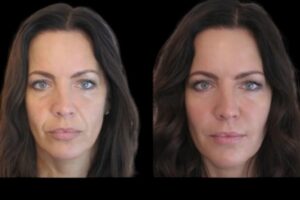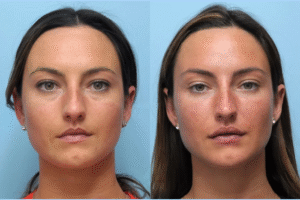For many people, the dream of parenthood is tied to a biological connection. But when infertility makes that connection impossible, a new path emerges—one of remarkable generosity, profound hope, and incredible resilience. Egg donation is a cornerstone of modern fertility treatment, a process where a woman’s selfless act of donating her eggs allows another individual or couple to build the family they’ve always wanted. It is a journey that is equal parts science and heart, and understanding its unique complexities is essential for all involved.
This blog is a comprehensive look at egg donation, from the practical and medical aspects to the deeply emotional and ethical considerations that shape this powerful journey.
The Science Behind the Hope
At its core, egg donation is a form of assisted reproductive technology (ART). The process involves two key individuals: the egg donor and the recipient.
The Donor’s Journey: A potential egg donor is typically a healthy young woman, usually between the ages of 21 and 34. Her journey begins with a rigorous and multi-layered screening process. This is not a simple “check-up”—it is a thorough evaluation that includes:
- Medical Screening: A full physical exam, blood tests to check for infectious diseases and hormone levels, and a genetic screening to identify any inheritable diseases.
- Psychological Evaluation: This is a crucial step that ensures the donor is emotionally and mentally prepared for the process. A psychologist or counselor will discuss her motivations, her understanding of the long-term implications, and her emotional readiness to relinquish her genetic connection to a future child.
- Family History Review: A detailed review of the donor’s family medical history, going back several generations, helps to identify any potential risks to the future child.
Once a donor is cleared, she begins a cycle of medication to stimulate her ovaries to produce multiple eggs. This process, known as controlled ovarian hyperstimulation, is monitored closely with blood tests and ultrasounds. The retrieval of the eggs is a minor surgical procedure, performed under sedation, where a doctor uses an ultrasound-guided needle to aspirate the eggs from the ovarian follicles.
The Recipient’s Journey: For the recipient, the journey is one of preparation and anticipation. While she will not be using her own eggs, her body must be ready to receive and nurture an embryo. This involves a course of hormone medications, primarily estrogen and progesterone, to thicken the uterine lining and prepare it for implantation.
Simultaneously, the retrieved donor eggs are fertilized with sperm from the recipient’s partner or a sperm donor in a laboratory setting—this is the IVF component of the process. Once the resulting embryos have developed, one or more are transferred into the recipient’s uterus. The rest can be frozen for future use.
The pregnancy that follows, if successful, is no different from any other. The recipient carries the child, gives birth, and experiences the full spectrum of a biological pregnancy, even without a genetic link to the child.
The Emotional and Psychological Landscape
While the science is clear, the emotions are complex. Egg donation is a journey of grief, surrender, and acceptance for the recipient, and one of compassion and introspection for the donor.
For the Recipient: Using donor eggs is often a last resort, coming after years of struggle, failed treatments, and the quiet mourning of one’s own genetic infertility. It requires a profound emotional shift, an acceptance that the child will not carry their genes. This can bring up feelings of grief, loss, and even guilt. Psychological counseling is a vital part of the process, helping intended parents work through these emotions and prepare for a unique family-building journey. The ultimate goal is to move from a place of “genetic desire” to a place of “intentional parenting,” where love, not genes, is the true bond.
For the Donor: For many donors, the act is one of immense altruism. They are giving the ultimate gift—the chance for someone else to experience parenthood. However, this decision is not without its own emotional weight. Donors must consider the long-term implications, including the possibility that a donor-conceived child may one day seek them out. Many donors find a deep sense of fulfillment and purpose, but some may experience a mix of emotions, including a sense of detachment or a subtle curiosity about the child’s life. This is why thorough psychological screening is so critical, ensuring a donor is not only physically healthy but also emotionally prepared for the complexities of her decision.
The Ethical and Legal Framework
The unique nature of egg donation has led to the development of a strict ethical and legal framework to protect all parties involved.
Legal Contracts: A comprehensive legal agreement is an absolute necessity. This contract, drafted by lawyers specializing in assisted reproductive technology, defines the rights and responsibilities of the donor and the recipient. It explicitly states that the donor relinquishes all parental rights and responsibilities to any child born from her eggs. It also addresses issues of compensation, confidentiality, and any potential future contact.
Anonymity vs. Openness: The landscape of egg donation has evolved. Historically, most donations were anonymous. Today, with the prevalence of genetic testing and a growing movement for donor-conceived individuals to know their origins, many donors are choosing to be “identity-release” or “open” donors, meaning the child can contact them after they turn 18. This is a deeply personal choice for both parties and is a critical point of discussion before a donation proceeds.
Compensation: Egg donors are compensated for their time, effort, and the physical and emotional discomfort of the process. Ethical guidelines are in place to ensure this compensation is not so high that it becomes an undue inducement, but rather a fair acknowledgment of the donor’s commitment.
Finding the Right Path: Agencies, Clinics, and Banks
For intended parents, the journey of finding an egg donor can be daunting. There are three primary avenues:
- Egg Donor Agencies: These are full-service agencies that recruit, screen, and match donors with recipients. They often provide extensive profiles, including photographs, personal histories, and family medical information. While more expensive, they handle all the logistics, from legal contracts to travel arrangements.
- Fertility Clinic In-House Programs: Many fertility clinics have their own donor programs. This can be a more streamlined process, as the medical team knows the donors well, but the selection pool may be smaller.
- Frozen Egg Banks: Frozen egg banks offer a large, diverse selection of eggs that have already been retrieved and frozen. This option is often more cost-effective and faster, as it eliminates the need to synchronize cycles with a fresh donor. The recipient simply purchases a cohort of eggs and has them shipped to their clinic.
A Community of Hope
Egg donation is a beautiful testament to the power of human connection. It is not just a medical procedure; it is a shared journey of vulnerability and strength. It’s a process that challenges our definitions of family, reminds us that love is the truest form of parenthood, and proves that a gift from a stranger can be the beginning of everything.


